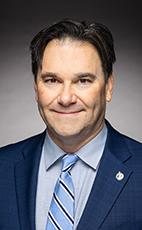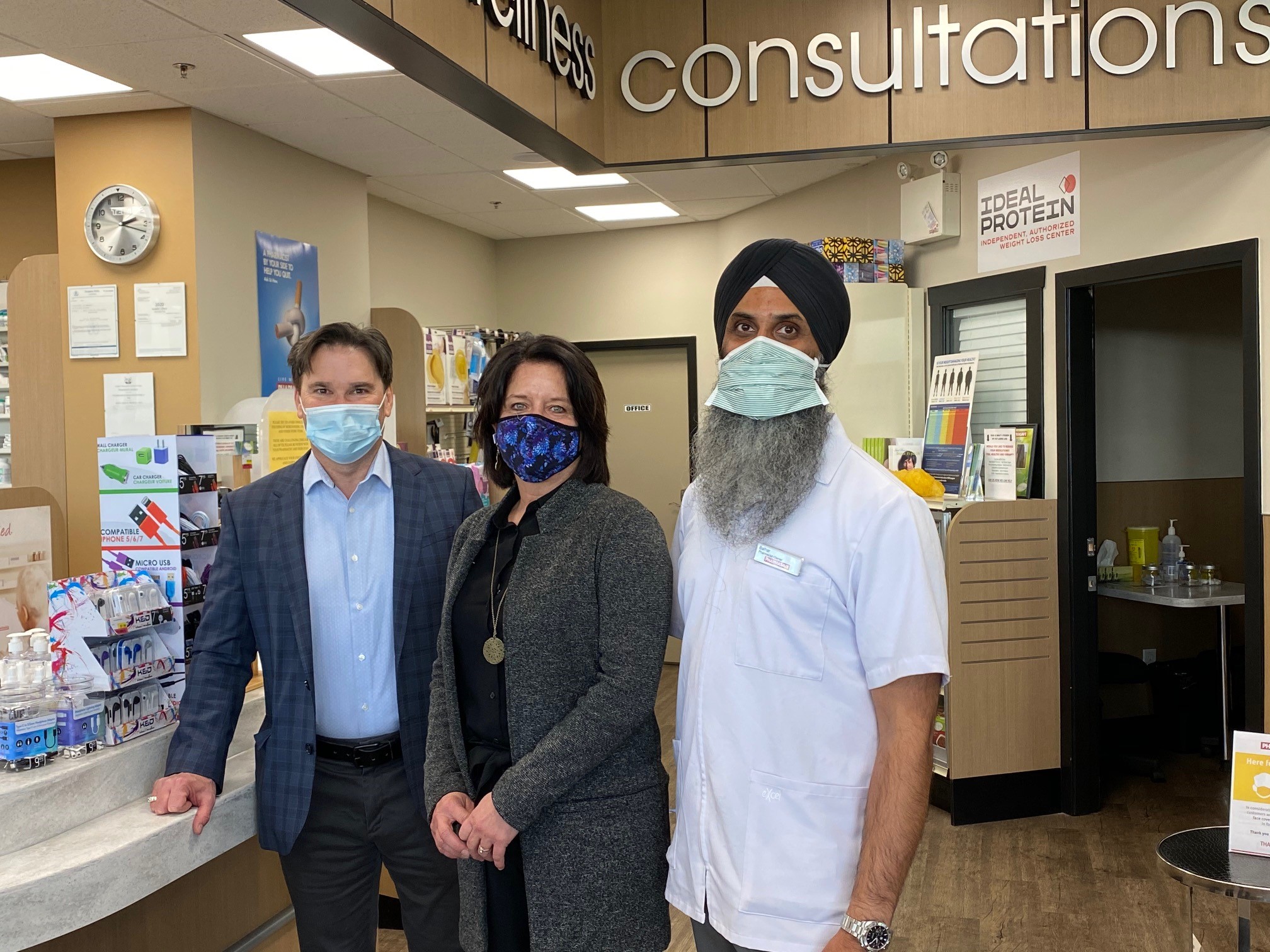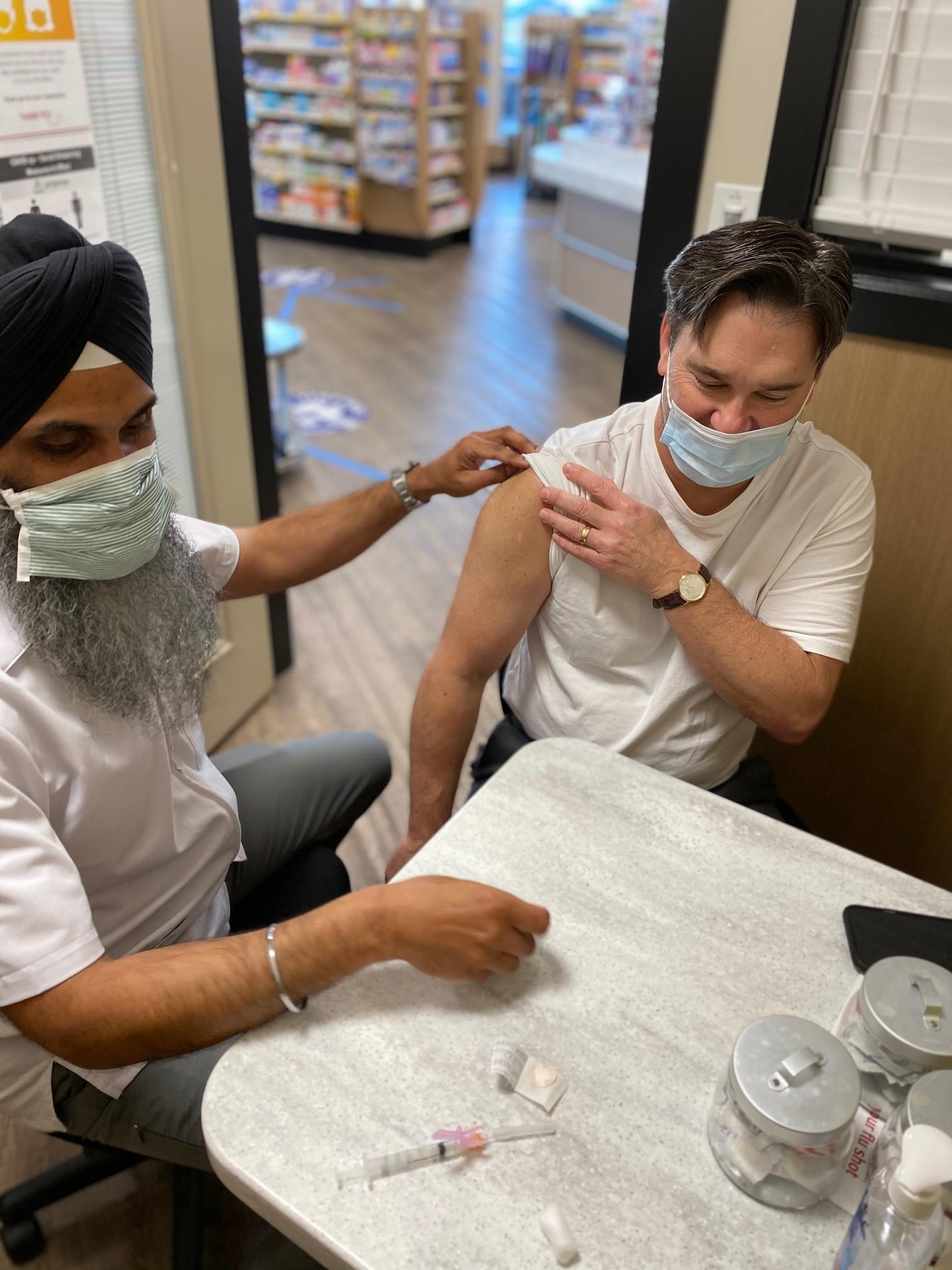
As national pharmacare is slated to become legislation by the end of 2023 with a national formulary of medicines to follow, it remains to be seen how Canadian drug coverage will be impacted with the changes.
On May 24, Don Davies, Member of Parliament for Vancouver Kingsway, made a presentation to the BC Pharmacy Association where he spoke at length about the potential impacts of a national pharmacare program to pharmacists across the country. In the hour-long town hall, Davies answered a range of members’ questions to reveal some of the insights and ideas behind the federal Liberal and NDP’s initiative, as part of a supply and confidence agreement, to implement universal drug coverage Canada-wide.
“It'll save individuals, employers and the public system money if it's done properly,” Davies told pharmacists. “And it'll build on the best traditions of medicare, which is that everybody will have access regardless of their ability to pay.”
Davies said his intention would be to develop clear policy to operationalize a federal drug coverage program, and part of that progress involves obtaining the input of pharmacists for consideration over the next two to three years.
In the wide-ranging conversation, here are some of the questions asked by members during the evening and the answers provided:
What would you envisage as a way in which pharmacies can begin to be compensated for the work that they do? Is it through clinical services? Is it through some kind of subsidy through dispensing fees?
Davies: We need to deep dive into right into the mechanics of how the present pharmaceutical delivery system works in this country. Because to be frank, that hasn't been explored enough, and I think we have to really understand from A to Z the entire business of pharmaceuticals, from how they're purchased to how they're ultimately dispensed, and the economics, so that we can complete the picture.
The core principles, throughout the entire study, every policymaker, and I was there for the whole entire two year study at the House of Commons, understands the pivotal core importance of the pharmacist in this and one of the core principles has to be to maintain the remuneration of pharmacists.
We recognize pharmacists as “the” key health care professional, that is the gatekeeper and the professional at the at the prescription, dispensing and advice level.
In all honesty, I don't think that's received the attention it deserves, but nobody is talking about getting system savings out of the pockets of pharmacists.
I think that what we are talking about is the system-wide savings in some of the bulk buying and some of the streamlined administration, for instance.
I still can't get over this figure, but Eric Hoskins, in his report, said that there's over 100,000 extended benefit plans in Canada. Now, if you think about processing claims through, as an example, each province’s medical services plan, you could reduce that to 13 different plans. So, streamlined administration is a cost saver.
Cost related non-adherence is a major, I think that was estimated to save about $1.1 billion a year. In other words, people who don't otherwise get sicker or go to the hospital because we can get them their medicine in a timely manner.
Of course, bulk buying. The figures I've seen, either from the U.S. Veterans Association or from New Zealand, or in the Scandinavian countries, we can save an average of 40% on prescription medication by buying in bulk now. I know we're doing that now, so that's not new savings. I think that there's certain provinces we are already realizing those savings.
But the bottom line is, we have to understand the pharmacists, and the pharmacy business, to make sure that those professionals are well remunerated for the services, and we have not worked out what system that would be. Obviously, dispensing fees and advice is one thing.
The other part of the equation, I think we need to always keep in mind, is we're also talking about a significant injection of new business into the pharmacist’s world. If it's true that 20% of people don't have any insurance and even more than that don't fill their prescriptions, you're talking about injecting into the system millions of potential customers and patients into pharmacies that are not doing that now.
Where I will conclude on this is, Canada is the only wealthy country in the world with universal health care that does not have some form of universal prescription coverage. We also happen to pay, depending on who you believe, either the third or the fourth highest prices in the world. It's like a perfect bad-policy storm.
We have many other models to look at. We can look at the U.S. veterans who do provide universal single payer coverage for all U.S. veterans; we can look at New Zealand; we can look at U.K.; we can look at Germany; we can look at the different countries, and we have.
I think we need a made-in-Canada approach ultimately, but we can be informed by the best of what's working in those countries.
To me, the core is, I want pharmacists. Frankly, I believe in expanded scope of practice for pharmacists, and I also believe that their financial situation has to be completely protected, if not enhanced through this process, and I think it can be if we do it properly.

Don Davies, Member of Parliament for Vancouver-Kingsway, attended a tour of Pharmasave - Kingsway & Commercial at 1808 Kingsway, Vancouver, to understand the work of community pharmacists in helping patients get the medications they need.
What are your thoughts on preserving the current role of insurers? From a pharmacy perspective, public payers make up only 40% of the amount paid.
Davies: There is no question that delivering this medical service through a single-payer system is the most efficient, the fairest and the most cost effective way to do it. We do think that we should be going through the public system in the same way that we deliver other medically necessary services.
There’s no question we have unanimity on the health need. Pharmacists are, first and foremost, health care professionals, that's why they went into pharmacy. So we all we all share the same goal of making sure that everybody gets the medication that they need, and pharmacists are properly monitoring that and are at the point of contact with patients of, so critical to the system.
But the other two parts really are, how do you deliver it from an administrative point of view and the economics of it. Fusing these two things, the system that makes most sense is the single-payer system.
Quoting from a paper that was done, it says, here's the differences: arguments integrate the present patchwork of public and private schemes, and fortunately, often proved to be euphemisms for arrangements where profitable enrollees stream to the private sector, while the needs of high risk patients are left to public drug programs. That fill-the-gaps or plug-the-holes approach would result in a high cost, inefficient system.
To say, keep the current system you have now and just have a public system for those that aren’t covered, which is called the patchwork system, have proved time and time again to be inefficient and the most expensive.
That's Quebec system now, and they pay the highest per-capita costs for drugs in the country because of that. So that's only one That's Quebec system now, and they pay the highest per-capita costs for drugs in the country because of that. So that's only one of many reasons why we think it should be through the single payer system. Insurance companies would not be part of the system that we envision.

Can there be a case made for reducing healthcare costs, by allowing pharmacists, for example, to prescribe for minor ailments?
Davies: Pharmacists I believe are our experts on prescription medications and often know at least as much if not more than a lot of physicians.
I say that with great respect to physicians, but this is how we train our pharmacists, and in my opinion, we’re not utilizing them to the full extent of their knowledge.
With a healthcare system under enormous strain, if not a crisis, I think this is an opportunity for us to rejig the system and get the professionals doing more of what they're trained for, and that includes pharmacists.
I'll tell you an example, it just happened yesterday. I phoned my doctor for renewal of a prescription I've been on for 20 years. Why do I need for my doctor for that? I think pharmacists should be able to do renewals of medication that that the patient is going to be on for a long period of time.
The ability to prescribe for recurring, easily diagnoseable, things like UTIs, maybe pinkeye, again, I don't want to take away from other professionals, because sometimes pinkeye isn’t pinkeye — sometimes it's something else — but surely, we can be getting more value out of pharmacists and using their talents and their skills in a more efficient way…we started off talking about how can we get prescription medicine into every Canadian’s medicine cabinet when they need it.
That's the simple question we started with. As we get further and further into this, we realize there's real opportunities here for us to get more effective, more efficient, in everything from how we prescribe, to who's doing the prescribing, to who's monitoring the medication, to how we're paying for it.
That's where the voice of pharmacists, I think, we really need to blow a hole into this discussion and get pharmacists right at the table, with a big seat at the table, helping to develop that, because we don't have all the answers.
In B.C., it can be argued that we already have universal PharmaCare program in that every patient is eligible for Fair PharmaCare, which is an income based system where people's deductible is based on a percentage of their income. Would you see the national PharmaCare program mimicking what we have in B.C. already?
Davies: I think B.C. is almost leading the country in making pharmaceuticals available to its population, but it's not quite the model that we have in mind, for two reasons. I would argue it's not universal, because it has a significant deductible.
To make to make a very, very crude analogy, it's like saying everybody's covered for pharmaceuticals but you got to pay the first $2,000. You could say that's universal but because the deductible is so significant, it's not truly universally accessible.
That's kind of the barrier I see with the B.C. system, although as a percentage of income is about the fairest you can get if you're going to have a deductible of any type at all… our view is that, to have a truly accessible program, respecting the principles of the Canada Health Act, then that means there's no deductible at all. It means that it has to be truly universal coverage without any barriers.
How does National PharmaCare affect First Nation coverage? Will it be applied to First Nations as well?
Davies: Right now, First Nations are covered by a plan called the non-insured health benefits plan, which provides extended health benefits to Indigenous Canadians. I think that the best thing to do is, and frankly, the constitutional thing to do, would be to sit down with Indigenous Peoples and negotiate the proper plan that they would like.
What medications will be on the national formulary? As good as PharmaCare is there's a lot of medications that either require special authority because they're only indicated for certain conditions, or they're just not on formulary at all. What will happen to access to medications like that?
Davies: The truth is that we can have as broad and as generous a formulary as we're prepared to pay for. My view has always been: I want a wide and generous formulary.
It still should be evidence-based. With expensive biologics coming and of course, we haven't even touched on drugs for rare diseases, there's some very important subsets that we have to address.
Our vision is one where the Canadian Drug Agency sets a very wide and generous formulary. Decisions have to be based on clinical evidence and value for money.
There should be a process where patients will be able to appeal any priority-setting decisions to ensure that their voices are heard. We also think that, to maintain transparency and accountability, that the formulary decisions of the body are subject to regular reports or audits.
We also still think that there may be a role for private insurance as well, that people could pay for if they wanted to, to pick up additional coverage that perhaps the public system didn't have is also an option that people are looking at.
Bottom line is we want patients to be able to get the medication that they need and that their doctors prescribed.
To see all of the Association’s previous town halls, including accessing recordings of the town halls, please visit bcpharmacy.ca/town-halls. Member log-in is required.
